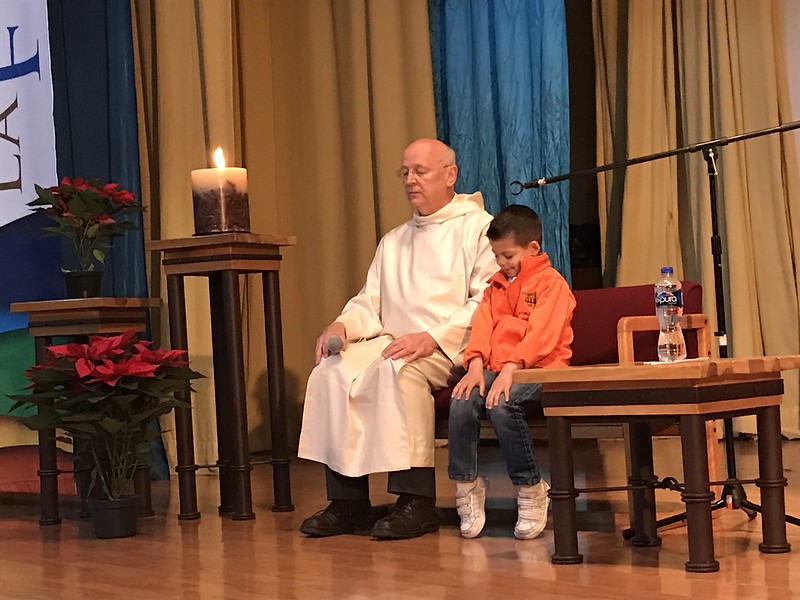We are so used to thinking of ourselves as ‘basically sinful’ that we find it difficult to accept the Scriptural confirmation that ‘The Kingdom [Presence] of God is within us’ and that we are ‘Temples of the Holy Spirit’. If we really can accept this truth “we can begin to sense something of our own potentiality….in meditation we discover both who we are and why we are.” This understanding arises out of the silence of contemplative prayer, where we “turn to and experience the living Spirit of God dwelling in our hearts.” It is meditation that open the doors to this silence and this profound experience. It is meditation that bring the mind into the heart, as the early Christians expressed it. Then we not only sense the totality of our own being and but also our connectedness with the Creation and the Divine and then, as John Main points out: “there comes an ever-deepening awareness of the harmony, the creative wholeness that we possess, and we begin to feel that we know ourselves for the first time.” But it is not just about our own wholeness and harmony; we experience also the truth of our total integration with the whole and we are restored to unity: “All matter, all creation, too, is drawn into the cosmic movement towards unity that will be the realization of the Divine harmony.” This then leads us “to experience… a new capacity for true empathy, a capacity to be at peace with others, and indeed at peace with the whole of creation.” Then we also no longer need to question the meaning of our existence – we know. It is in caring about ourselves, our family, our neighbour and the whole of creation that our meaning emerges. Then we will have ‘life….in all its fullness’.
Again we have been conditioned that this way of prayer is only for some highly spiritual persons. But this way of one-pointed attention in prayer was often compared to ‘following the narrow path’. We hear St John Chrysostom (349-407), an Early Church Father and Archbishop of Constantinople, say: “When Christ orders us to follow the narrow path, he addresses himself to all. The monastic and the lay person must attain the same heights…Those who live in the world, even though married, ought to resemble monks in everything else. You are entirely mistaken if you think there are some things require of ordinary people and others of monks.” St Paul and all the apostles too addressed ordinary people, the butchers, the bakers and candle makers.
It is not surprising that meditation in many forms is so prevalent in our time. If only the whole of humanity could become aware of our deep interconnectedness and unity, there would no longer be abuse of our environment, causing environmental disasters; there would no longer be wars. The world would cooperate to solve the problem an increase in population causes.
But ‘pure prayer’ requires in St Paul’s words: boldness, courage, faith, commitment and perseverance. Especially courage to ‘leave self behind’, the ambitions, worries and illusions of the ego and not be dominated by “the growing terror of nothing to think about”, as T,S. Eliot put it. But to trust that “There is no way to truth or to the Spirit that is not the way of love. God is love.





